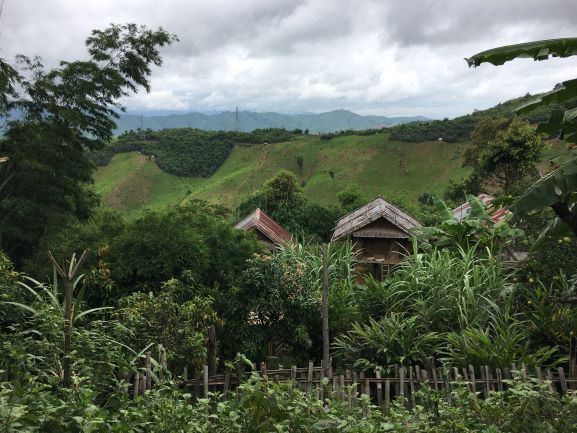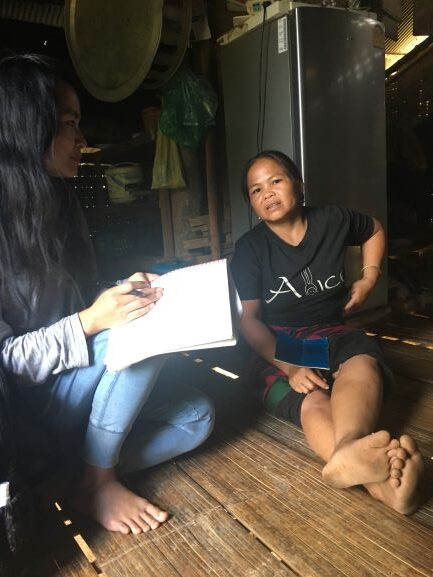ネパールにおける高カースト・ヒンドゥーと先住民族の対立について ――「牛」を事例に――
対象とする問題の概要 ネパールでは 1990 年の民主化まで、王制、ネパール語、そしてヒンドゥー教を 3 本柱とした国民統合政策が実施されていた。そのため、非ヒンドゥー教徒などは自らの文化・宗教実践が認められず、様々なヒンドゥー儀礼の実践…

Swidden cultivation, a prominent agricultural practice in the uplands of Laos, is often blamed for climate change emissions as it is assumed to be a major cause of deforestation and soil degradation. Since the colonial era, swidden cultivation, which is pejoratively referred to as slash-and-burn agriculture, has been blamed for environmental degradation. In the post-colonial era, governments and international organizations such as the United Nations Development Program (UNDP), the United Nations Environment Program (UNEP), and the Food and Agriculture Organization (FAO) have blamed swidden cultivation practices for damaging the environment and keeping swidden cultivators in poverty. As a result, governments have sought to eliminate the practice. In Laos, the government has sought to stabilize and eradicate swidden cultivation and one of the strategies for doing so has been to replace it with permanent cash crops, such as rubber, banana, and eucalyptus plantations.
With increasing interest in mitigating and adapting to climate change, the relationship between climate change and swidden cultivation in countries like Laos is becoming an increasingly important topic to study. However, there is a lack of research on the intersection of these two topics. For example, it is not well known how much swidden cultivation contributes to carbon emissions in comparison to other land uses, such as plantations. Additionally, it is not well known how swidden cultivators will be able to adapt to climate change in relationship to those engaging in other agricultural practices.
This research aimed to:
1. Investigate policies related to the intersection of swidden cultivation and climate change in Laos, including policies on deforestation, soil degradation, and agricultural development.
2. Understand different stakeholders’ perceptions of climate change in relation to swidden cultivation practices. Relevant stakeholders include government officials, international organization representatives, and community members.
3. Understand the transformations of livelihoods among upland villagers who mainly practice swidden cultivation or do so alongside other forms of agricultural production.

I conducted fieldwork for five months, from July to November 2022. I visited two provinces, Bokeo and Oudomxay, including two districts and four villages. I interviewed 55 households and four village heads, and seven government officials at different levels (district, province, and ministry). I also conducted interviews with international donors and consultants in the Vientiane capital.
This research found that the topic of climate change and responsibility for contributions to greenhouse gas emissions (e.g., swidden cultivation, the expansion of cash crops, and development projects) is still an ongoing debate among stakeholders. Meanwhile, villagers experience the effects of climate change, such as floods and drought, which impact their agricultural production and their livelihoods. When asked why the change is happening, they first responded that they were unsure because they have been doing the same thing for centuries, but then they expressed that it might be their activities that caused deforestation. This shows that there is an important distinction between what villagers present to outsiders versus what they say amongst themselves. Further analysis will be conducted based on these results and will be developed for three academic publications.
I now have a deeper understanding of how climate change is discussed and understood in Laos. However, much research still needs to be done in the future, such as the influence of foreign investors, like Chinese companies, upon climate change issues. It would be interesting to analyze how they influence the Lao government as well as local villagers in their perspectives on climate change in relation to livelihood transformation or “development”. Additionally, although my project investigated the REDD+ program, this project is still in the early stages of implementation. Therefore, it would be interesting to follow up on how local government officials, as well as villagers, respond to this program.
Copyright © 附属次世代型アジア・アフリカ教育研究センター All Rights Reserved.